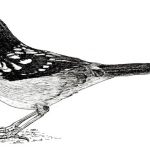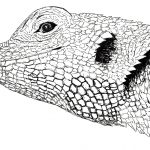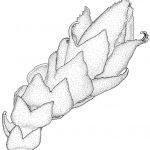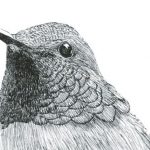It’s About Time
It's too cloudy to stargaze

Stargazing has been tough for the past few months. Precipitation is the culprit, with a new record set for the number of rainy days this … Continue reading
We've got issues.

Stargazing has been tough for the past few months. Precipitation is the culprit, with a new record set for the number of rainy days this … Continue reading

With the vernal equinox just passed, lengthening days coupled with warmer temperatures means the rapid appearance of first blooms on the wildflowers of the Willamette … Continue reading

For the past six months or so, some animal has been digging holes next to the path along the ponds on the east side of … Continue reading

February is a very interesting month for the Willamette Valley. Although it’s midwinter in the northern hemisphere, we have spring activity gearing up, with expectations … Continue reading

The natural world has its regular rhythms disrupted by natural disasters like ice storms, much the way human environments change. Incense cedar trees have proven … Continue reading
The equinox passing is reflected in shorter days. The rate of change itself changes. Change in day length is fastest at equinox and slowest at solstice. The day-to-day change at equinox is about 3 minutes a day but only 30 seconds a day at winter solstice. At the end of September, seeds of incense cedar were scattered to the winds and now their cones are raining down. The cones of incense cedar decompose over winter and are gone by spring. Continue reading
September is the month that hikers in western Oregon look forward to more than any month. Rainless days are almost guaranteed, mosquito levels drop off quickly and tourists thin out after Labor Day. This year there are a few qualifications to what is typically our best month for backpacking. Mosquito levels may be slow to disappear in the high country because there haven’t been enough freezing nights. Continue reading
The mosquito fern that covered the eastside Delta Ponds’ surfaces with dramatic purple the past two winters had nearly disappeared by late spring of this year. The duckweed family overtook the mosquito fern and turned the ponds green, much to the gustatory delight of the waterfowl. Suddenly, in July, the mosquito fern has made a resurgence and may regain dominance; observations to come. Even the green is different. Instead of common duckweed, the green is dominated by the tiny water meal (Wolffia) of the flowering duckweed family. Continue reading
By July, gardens are burgeoning with flowers and vegetables. They will thrive through the summer only if we pay diligent attention to adequate watering. Digital hose timers are great for extended trips out of town. We also have to deal with combatting weeds and pests. I wrestle with use of poisons. Slug bait offends my organic sensibilities but it seems the only effective way to keep snails away from our hostas and lilies. Continue reading
Summer solstice is arguably the most significant of all solar events. That the sun shone straight down a well in Syrene, Egypt, every summer solstice day gave Eratosthenes the insight for determining the Earth’s circumference 2,200 years ago. Stone monuments worldwide are aligned to commemorate this longest day of the year. The bronze sighting monument on the summit of Mount Pisgah has slots that line up with sunrise and sunset on the solstice. Continue reading